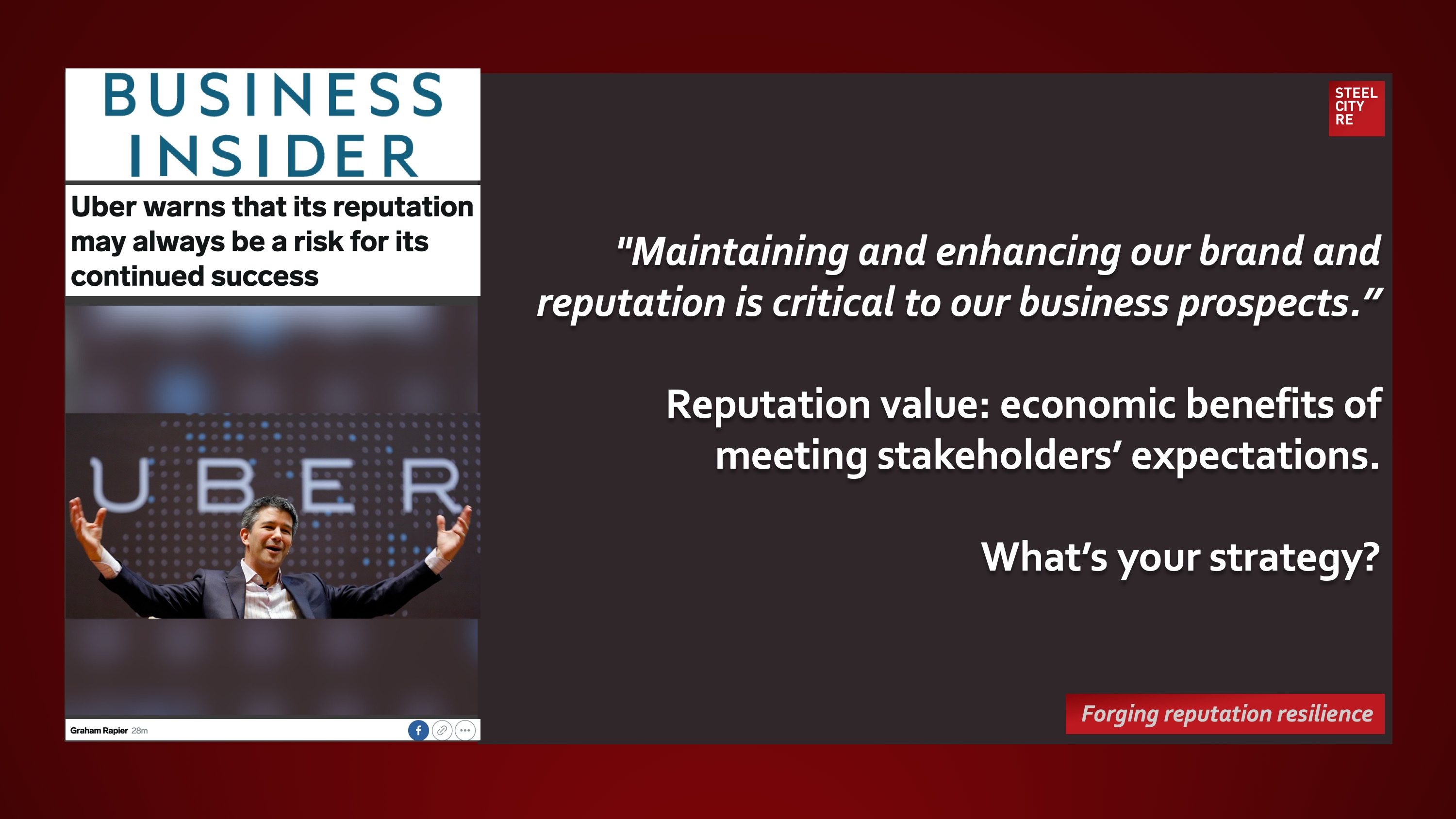Notably for an IPO filing, Uber disclosed that “In 2017, the #DeleteUber campaign prompted hundreds of thousands of consumers to stop using our platform within days…Subsequently, our reputation was further harmed when an employee published a blog post alleging, among other things, that we had a toxic culture and that certain sexual harassment and discriminatory practices occurred in our workplace.”
Business Insider
April 13, 2019
“Maintaining and enhancing our brand and reputation is critical to our business prospects.”
Reputation value is the sum of the economic benefits of meeting stakeholders’ expectations.
Reputations are valuable strategic intangible assets. Threats to these assets⏤ enterprise reputation risks, often mislabeled “brand risks” ⏤ need to be managed, and management needs to be overseen through reputation risk governance lest reputational damage or reputational harm result in long-tailed go-forward losses in economic value and/or political power. Because these intangible risks arise from the interplay of stakeholder expectation, experiences, and media amplification, parametric insurances for intangible asset risks, for reputational value, for reputational harm, and for reputation assurance help mitigate risk by telling a simple, convincing and completely credible story of quality reputation governance to stakeholders. This story telling effect is the expressive power of insurance complementing insurance’s better known instrumental power of indemnification.
Risk management, risk financing in insurance captives, and risk transfer through reputation insurances comprise the constituent elements of a comprehensive solution.
What’s your strategy?

